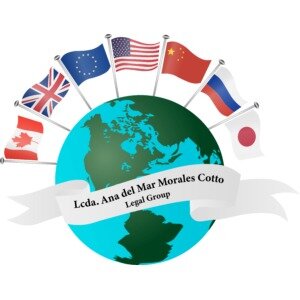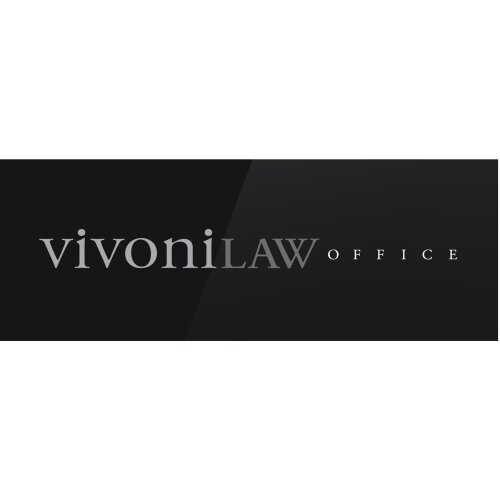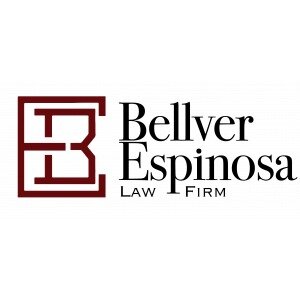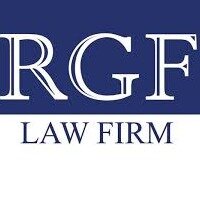Best Commercial Litigation Lawyers in Puerto Rico
Share your needs with us, get contacted by law firms.
Free. Takes 2 min.
Or refine your search by selecting a city:
List of the best lawyers in Puerto Rico
About Commercial Litigation Law in Puerto Rico
Commercial litigation in Puerto Rico involves the resolution of disputes arising from business and commercial relationships. This legal area encompasses actions related to contracts, partnerships, business torts, shareholder disagreements, intellectual property, and other matters affecting businesses. Puerto Rico, with its unique status as a U.S. territory, operates under a hybrid legal system that blends elements of civil law and common law, making commercial disputes particularly intricate. Navigating these complexities often requires skilled legal guidance, especially when businesses, commercial entities, or individuals face disagreements or financial claims.
Why You May Need a Lawyer
Business disputes can quickly become costly and complicated, impacting your company's daily operations and reputation. Some common reasons you may need a commercial litigation lawyer in Puerto Rico include:
- Breach of contract cases, such as failed sales or service agreements
- Disputes among business partners or shareholders
- Unfair competition and business torts, such as fraud or misrepresentation
- Debt collection or non-payment issues
- Intellectual property concerns, including copyrights and trademarks
- Conflicts regarding leases, real estate, or commercial property
- Employment-related commercial disputes
- Failure to comply with government regulations
- Class action litigation or mass disputes
A qualified attorney ensures your rights are protected, helps you understand your obligations, and represents you in negotiations or court proceedings. Having experienced legal support is critical in evaluating your practical and strategic options, managing risks, and pursuing effective resolutions.
Local Laws Overview
Commercial litigation in Puerto Rico is primarily governed by local civil codes, commercial codes, and judicial precedents. Key features of the legal system include:
- Hybrid Legal System - Puerto Rico blends civil law (inspired by Spanish law) and common law influences, so legal procedures and contract interpretations may differ from U.S. mainland states.
- Bilingual Proceedings - While Spanish is the official language of the courts, most legal documents are available in both Spanish and English.
- Court Structure - Business litigation typically begins in Puerto Rico’s Court of First Instance (Tribunal de Primera Instancia), but cases involving federal law, interstate commerce, or large corporations may be heard in the U.S. District Court for the District of Puerto Rico.
- Contract Enforcement - Contracts are governed by the Puerto Rico Civil Code and by relevant local statutes. Written and verbal contracts can both be enforceable, though written contracts are highly preferred for clarity and evidence.
- Pre-trial Procedures - Puerto Rico courts may require that parties attend mediation or other Alternative Dispute Resolution (ADR) methods before proceeding to trial.
- Limitation Periods - Different types of commercial actions are subject to specific statutory limitation periods, usually three to fifteen years depending on the nature of the dispute.
Understanding the nuances of Puerto Rico’s legal framework is essential for successful commercial litigation.
Frequently Asked Questions
What types of cases fall under commercial litigation in Puerto Rico?
Commercial litigation includes contract disputes, business torts, partnership or shareholder conflicts, intellectual property claims, real estate issues, and financial disagreements between businesses or individuals engaged in commerce.
Is it necessary to have a written contract to file a commercial lawsuit?
While written contracts are preferable, Puerto Rico recognizes both written and verbal agreements, as long as the essential elements of a contract are proven. However, written evidence significantly strengthens a case.
Can foreign companies sue or be sued in Puerto Rico courts?
Yes, foreign companies doing business in Puerto Rico can initiate or face lawsuits. However, they may need to comply with local registration and representation requirements to pursue or defend legal actions in court.
How long does commercial litigation usually take in Puerto Rico?
The duration varies depending on the complexity of the case. Simple matters might resolve in a few months, while complicated disputes involving multiple parties or appeals could take several years.
Are there alternatives to going to court for business disputes?
Yes. Mediation, arbitration, and other forms of Alternative Dispute Resolution (ADR) are encouraged and often required before formal litigation. These processes can save time and costs for all parties involved.
What should I do if I am served with a commercial lawsuit?
Immediately seek legal counsel. Do not ignore the summons or attempt to handle the matter without understanding your rights and obligations. Missing deadlines can result in a default judgment against you.
Can I recover attorney’s fees if I win my case?
Generally, each party is responsible for their own legal fees unless a statute or contract provision allows for recovery. It is important to review your contracts for such clauses and discuss with your lawyer.
How are judgments enforced in Puerto Rico?
Once a judgment is final, the prevailing party can seek court assistance to collect damages, which may include liens, garnishments, or other enforcement actions as provided by local law.
What happens if a business refuses to comply with a court order?
A business that refuses to comply may face legal penalties, including fines, additional damages, or sanctions. The court has specific mechanisms to enforce compliance.
Do Puerto Rico’s commercial laws differ from those in the mainland U.S.?
Yes. Puerto Rico’s civil law tradition and certain local statutes mean that contract interpretation, court procedures, and commercial regulations can differ from most U.S. states. Local legal expertise is crucial.
Additional Resources
If you need further information or assistance related to commercial litigation in Puerto Rico, consider contacting the following resources:
- Puerto Rico Department of Justice (Departamento de Justicia) - Information about the legal system and assistance with certain complaints
- Puerto Rico Bar Association (Colegio de Abogados de Puerto Rico) - Directory of licensed attorneys and public resources
- Puerto Rico Office of Court Administration (Oficina de Administración de los Tribunales) - Information on court locations, procedures, and access to judiciary services
- Federal District Court for the District of Puerto Rico - For business disputes under federal law or interstate commerce
- Local Chambers of Commerce - Business support, networking, and referrals to specialized legal professionals
Next Steps
If you are facing a commercial dispute or have questions about your rights and obligations as a business entity or individual in Puerto Rico, it is wise to consult an experienced commercial litigation attorney. Take the following steps:
- Gather all relevant documents, such as contracts, communications, and payment records
- Write down a clear timeline of events and parties involved
- Contact a qualified lawyer familiar with Puerto Rico’s commercial laws
- Ask about initial consultations and potential costs
- Follow your attorney’s instructions and remain proactive throughout the case
Early legal intervention increases your chances of reaching an efficient and favorable resolution. Protect your business interests by getting informed legal advice as soon as you become aware of a possible dispute or litigation risk.
Lawzana helps you find the best lawyers and law firms in Puerto Rico through a curated and pre-screened list of qualified legal professionals. Our platform offers rankings and detailed profiles of attorneys and law firms, allowing you to compare based on practice areas, including Commercial Litigation, experience, and client feedback.
Each profile includes a description of the firm's areas of practice, client reviews, team members and partners, year of establishment, spoken languages, office locations, contact information, social media presence, and any published articles or resources. Most firms on our platform speak English and are experienced in both local and international legal matters.
Get a quote from top-rated law firms in Puerto Rico — quickly, securely, and without unnecessary hassle.
Disclaimer:
The information provided on this page is for general informational purposes only and does not constitute legal advice. While we strive to ensure the accuracy and relevance of the content, legal information may change over time, and interpretations of the law can vary. You should always consult with a qualified legal professional for advice specific to your situation.
We disclaim all liability for actions taken or not taken based on the content of this page. If you believe any information is incorrect or outdated, please contact us, and we will review and update it where appropriate.
Browse commercial litigation law firms by city in Puerto Rico
Refine your search by selecting a city.













